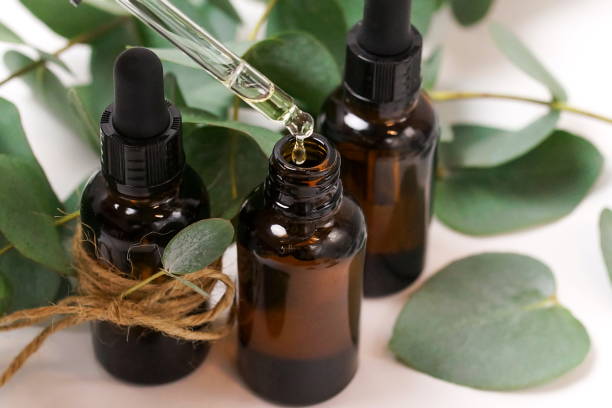In the world of skincare, our pursuit of healthy, glowing skin frequently prompts us to experiment with different products and routines. Among them, body oils have become effective partners in obtaining hydration and nourishing the skin. However, how precisely can physical oils enter the skin barrier and nourish it? Let’s examine the science underlying the popularity of skincare products.
Understanding the Skin Barrier:
Before we unravel the mysteries of body oils, it’s crucial to grasp the concept of the skin barrier. The skin barrier, also known as the stratum corneum, is the outermost layer of the epidermis. It serves as a protective shield, guarding against environmental aggressors, moisture loss, and harmful substances.
The Role of Body Oils:
Body oils play a pivotal role in skincare by supplementing the skin’s natural lipid barrier. Unlike moisturizers, which primarily hydrate the skin’s surface, body oils possess a unique ability to penetrate deeper layers. Let’s explore how they achieve this feat.
Composition Matters:
The effectiveness of body oils hinges on their composition. High-quality oils are rich in fatty acids, vitamins, and antioxidants. These components work synergistically to nourish and repair the skin barrier from within.
Small Molecular Size:
One of the key reasons body oils penetrate the skin barrier is their small molecular size. Unlike thicker creams and lotions, oils can easily traverse the stratum corneum, delivering nourishment deep into the epidermis.
Lipid Mimicking Properties:
Body oils possess lipid-mimicking properties, meaning they closely resemble the natural oils produced by our skin. This resemblance enables them to integrate seamlessly with the skin’s lipid barrier, enhancing its strength and resilience.
The Penetration Process:
Now that we understand the mechanisms behind body oils, let’s delve into the penetration process:
· Surface Absorption:
Upon application, body oils initially absorb into the skin’s surface, forming a protective layer. This layer helps trap moisture and prevents water loss, resulting in softer, smoother skin.
· Transdermal Penetration:
As time progresses, the smaller molecular size of body oils facilitates their transdermal penetration. They navigate through the intercellular spaces of the stratum corneum, reaching the deeper layers of the epidermis.
· Targeted Nourishment:
Once within the skin, body oils deliver a plethora of nutrients directly to where they are needed most. Fatty acids replenish lipid levels, vitamins promote cellular regeneration, and antioxidants combat free radicals, fostering overall skin health.
Nourishing the Skin:
Body oils not only penetrate the skin barrier but also nourish it from within. Here’s how:
Moisture Retention:
By reinforcing the lipid barrier, body oils aid in moisture retention. This prevents transepidermal water loss (TEWL) and helps maintain optimal hydration levels, keeping the skin supple and hydrated.
Repair and Regeneration:
The nourishing properties of body oils promote skin repair and regeneration. Essential fatty acids such as omega-3 and omega-6 accelerate cell turnover, resulting in smoother, more youthful-looking skin.
Protection Against Environmental Stressors:
In addition to nourishment, body oils offer protection against environmental stressors. They create a shield against pollutants, UV radiation, and harsh weather conditions, fortifying the skin’s defense mechanisms.
Choosing the Right Oil:
With a myriad of body oils available in the market, selecting the right one can be daunting. Here are some factors to consider:
· Skin Type:
Tailor your choice of body oil to your skin type. For dry skin, opt for heavier oils like coconut or avocado oil, while lighter oils such as jojoba or grapeseed are ideal for oily or acne-prone skin.
· Ingredients:
Pay attention to the ingredients list. Look for oils free from synthetic fragrances, parabens, and other potentially harmful additives. Natural and organic oils are often gentler on the skin and yield superior results.
· Texture and Absorption Rate:
Consider the texture and absorption rate of the oil. Some oils may feel greasy or take longer to absorb, which may not be suitable for daily use, especially during warmer months.
Embracing the Ritual:
Incorporating body oils into your skincare ritual is not just about nourishing the skin; it’s a sensory experience that nurtures the mind and body. The act of massaging oil into the skin promotes relaxation, reduces stress, and enhances overall well-being. Here are some tips for making the most of your body oil ritual:
Take Your Time:
Dedicate a few minutes each day to indulge in a luxurious body oil massage. Slow, deliberate movements not only ensure thorough coverage but also amplify the relaxation benefits.
Warmth is Key:
Warm the oil between your palms before applying it to your skin. This not only enhances absorption but also heightens the sensory experience, enveloping you in a cocoon of warmth and tranquility.
Mindful Application:
Approach each application mindfully, focusing on the sensations and allowing yourself to fully immerse in the moment. Pay attention to areas of tension, and use gentle, circular motions to release built-up stress.
Customize Your Blend:
Get creative with your body oil blends by incorporating essential oils for added therapeutic benefits. Lavender promotes relaxation, peppermint invigorates the senses, and rosemary stimulates circulation—choose oils that resonate with you.
Post-Shower Ritual:
Maximize absorption by applying body oil to damp skin post-shower. The moisture helps lock in the oil, leaving your skin soft, supple, and deeply hydrated throughout the day.
The Sustainable Choice:
In addition to their skincare benefits, body oils offer a sustainable alternative to traditional moisturizers. Many commercial moisturizers contain water as their primary ingredient, necessitating the use of preservatives and emulsifiers to maintain stability. Body oils, on the other hand, are anhydrous formulations, meaning they do not contain water. This eliminates the need for synthetic additives and reduces the product’s environmental footprint.
Furthermore, body oils often boast simpler ingredient lists, comprised of natural oils and botanical extracts. By opting for clean, eco-friendly formulations, you not only support your skin’s health but also contribute to a greener, more sustainable planet.
Body oils can penetrate the skin barrier and feed the skin from the inside out, providing more than simply surface-level hydration. Oils for the body are known to revitalize and strengthen skin by matching the structure of lipids, having a short molecular size, and having an abundant nutrient content. This results in the skin appearing exceptionally soft and glowing. Unlock the secrets to healthier, more resilient skin by utilizing the power of skin oils in your skincare routine.





